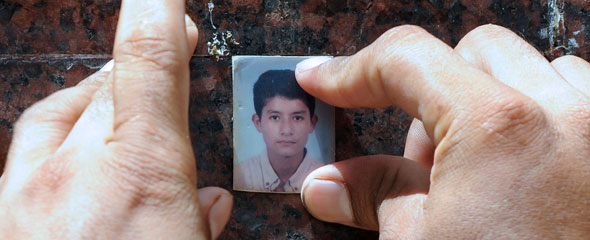
Colombian and Spanish authorities debated the success of Colombia’s Justice and Peace Process in Madrid on Thursday.
At a debate organized by the Toledo International Centre for Peace, Spanish and Colombian legal authorities discussed the achievements and failures of the Justice and Peace law, which was implemented in 2002 by President Alvaro Uribe.
Spanish Supreme Court Judge, Baltasar Garzon, stated that he believed the Justice and Peace law has suffered as a result of the Colombian government’s decision to extradite former paramilitary and guerrilla bosses to the U.S. because it meant that much truth surrounding many crimes would never be known, reported news site W Radio.
Responding to criticism over the lack of convictions against paramilitaries and guerrillas, Colombia’s Prosecutor General Guillermo Mendoza said that the Justice and Peace law “could not be measured by the number of convictions” alone. Colombia’s Deputy Justice Minister, Miguel Ceballos, added that “the truth about crimes committed by the AUC paras will be discerned from the U.S.”
Colombia’s High Commissioner for Peace, Frank Pearl, defended the achievements of the Justice and Peace law, declaring that it had enabled the victims of crimes to understand and access their rights, reported newspaper El Tiempo.
“This is the most sophisticated reparation process in the world,” stressed Pearl. “We are responsibly creating the conditions for peace, that is to say finding out the truth and compensating victims.”
Pearl and Ceballos defended the decision to extradite paramilitary bosses (who demobilized between 2002 and 2006) to face drug trafficking charges. However, many participants at the debate asserted that the extraditions had negatively affected the search for truth.
On behalf of the victims, Ivan Cepeda referred to failures of the Justice and Peace law, stating that he believed there risks being a “collapse” in the system and he declared that neither prosecutors nor judges from the U.S. want to get involved with Colombia. Cepeda suggested that the extradited paramilitaries could make “embarrassing revelations” about the Colombia government.
Pearl denied this, insisting that the aim of the extradition was not to hide the truth and had instead taken place because the paramilitaries had not complied with the Justice and Peace terms.
The reparation process was established as an agreement between the Colombian government and paramilitary armed groups throughout the country. The law required that illegal armed groups demobilize and in exchange they would not be extradited for their crimes. However, many have since been sent to the U.S. to face drug charges.
Garzon referred to the complexity of the process in achieving “reparation, truth and international credibility,” and he confirmed that he disagreed that paramilitaries should be extradited for drug trafficking reasons before their crimes committed against humanity.
According to figures released by El Tiempo, in the seven years since Justice and Peace was begun, over 51,000 armed gang members have been demobilized across Colombia – some 32,000 belonging to right-wing paramilitary group while some 15,000 fought with FARC guerrilla factions.

